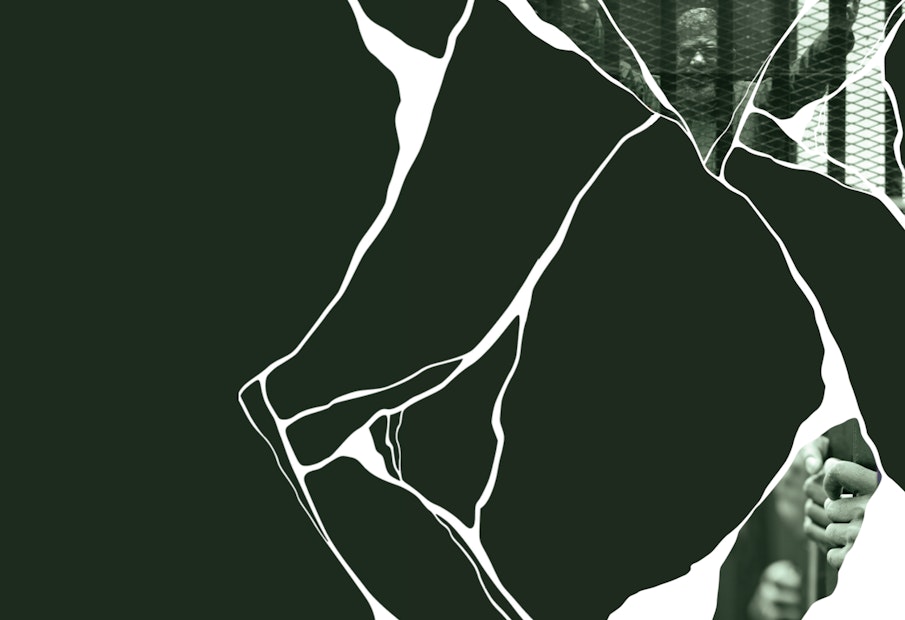*Please Note: The livestream will begin on this page at the time of the event.
What does the Egyptian Muslim Brotherhood’s swift rise and dramatic fall reveal about Islamist politics and extremist mobilization?
Join Century International on Wednesday, March 1 from 12:00 PM to 1:00 PM ET to hear authors Abdelrahman Ayyash, Amr ElAfifi, and Noha Ezzat, and respondent Elizabeth Nugent, explain how the same factors that undermined the Brotherhood are likely to drive its resurgence.
Broken Bonds: The Existential Crisis of Egypt’s Muslim Brotherhood, 2013–22, presents a nuanced and granular portrait of the organization through extensive interviews with leaders, rank-and-file members, and internal dissenters. Its fresh new analysis will serve as a welcome corrective for policymakers, researchers, and all observers of Egyptian politics.
Live CART and ASL interpretation will be provided.
Welcome Remarks:
- Mark Zuckerman, president, The Century Foundation
Moderator:
- Thanassis Cambanis, director, Century International
Respondent:
- Elizabeth Nugent, assistant professor of politics, Princeton University
Featuring:
- Abdelrahman Ayyash, fellow, Century International
- Amr ElAfifi, PhD candidate, Syracuse University
- Noha Ezzat, writer and researcher
Presented by The Century Foundation’s Century International.
Speaker Bios
Thanassis Cambanis is an author, journalist, and director of Century International. His work focuses on U.S. foreign policy, Arab politics, and social movements in the Middle East. He is currently working on a book about the impact of the 2003 Iraq invasion on the international system. He has written books about Egypt’s 2011 uprising and Hezbollah in Lebanon, and has edited four volumes about politics and security in the Arab world. He regularly contributes to Foreign Affairs, The New York Times, World Policy Review, and other publications. He is an adjunct professor at Columbia University’s School of International and Public Affairs.
Liz Nugent studies the politics and political psychology of authoritarianism and religion in the Middle East. She is the author of After Repression: How Polarization Derails Democratic Transition, published by Princeton University Press (2020). Dr. Nugent holds a PhD and MA in politics from Princeton University as well as a BA in Arabic and an MA in Arab Studies, both from Georgetown University. She was previously an assistant professor of political science at Yale University, a postdoctoral research fellow with the Middle East Initiative at Harvard Kennedy School of Government’s Belfer Center for Science and International Affairs, and a Fulbright Fellow in Cairo, Egypt.
Abdelrahman Ayyash is a fellow at Century International and director of the Egyptian Muslim Brotherhood working group. Ayyash is an award-winning journalist and a researcher specialized in Islamic movements. He holds an MA in global affairs from Bahcesehir University in Istanbul, Turkey. He translated three books on civil-military relations and the Muslim Brotherhood. He has published reports and articles about the Muslim Brotherhood for institutions including the Carnegie Endowment for International Peace and the Arab Reform Initiative.
Amr ElAfifi is a PhD candidate at Syracuse University where he works on the relationship between trauma and political participation. He is also the research manager at the Freedom Initiative where his work is focused on conditions of detainment and how they affect political prisoners and their loved ones. Prior to these positions, Amr worked at the World Bank where he focused on bettering investment climates in fragile and conflict countries.
Noha Ezzat is a writer and researcher. Her work focuses on geopolitics, and political and historical sociology, with a focus on Egypt, Turkey, and Iran. She holds a master’s in international relations from Durham University with a thesis on war and modernization in Iran. Noha has published research work and articles for Durham University’s Institute of Islamic and Middle Eastern Studies, Al Jazeera Center for Studies, Carnegie Endowment for International Peace, and Hungary’s Institute for Trade and Foreign Affairs.
